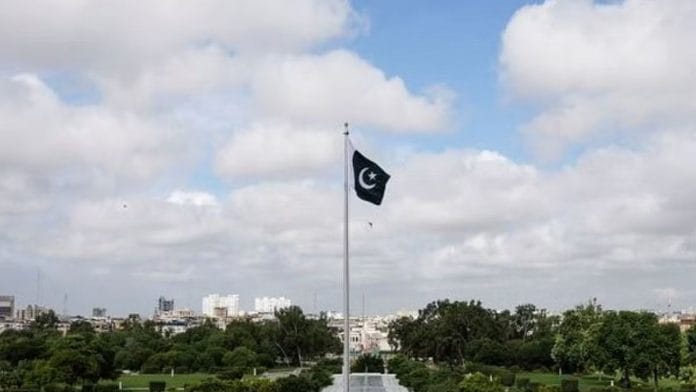I recently came across a tweet by a Pakistani journalist detailing a disturbing gathering organised by Sipah-e-Sahaba, an anti-Shia extremist group, in Islamabad near the Inter-Services Intelligence headquarters. While giving a speech, the speaker propagated dangerous lies and hate, labelling Shias as traitors, murderers, and terrorists, while openly calling for their expulsion from Islam.
Anti-Shia sentiment in Pakistan society runs deep and their history is filled with the persecution and systematic targeting of Shia communities, creating a troubling legacy of intolerance toward Shias. The irony, however, is hard to overlook. Muhammad Ali Jinnah, who created Pakistan state with the vision of a unified Muslim homeland, was himself born into a Khoja Shia Muslim family.
A little background: Sipah-e-Sahaba Pakistan (SSP), though officially banned, frequently resurfaces under new names, driven by a strict interpretation of Deobandi Islam that regards Shias and non-Deobandi Sunnis as heretics. The group’s ideology is starkly exclusionary; its leaders have openly called for sectarian division. SSP leader Azam Tariq once said, “Shias must be declared infidels if Islam is to be established in Pakistan.”
Deep divides in Islam
This extremist outlook comes from two closely connected ideas, first, the notion of ex-communication or takfir, which allows extremists to label other Muslims as “unbelievers”. This doctrine leaves no room for differing interpretations within Islam, fostering an environment where only a single, rigid interpretation is tolerated. Any view that strays from their “correct” stance would be called heresy or apostasy.
Then there’s also the belief that anyone seen as heretical or infidel deserves punishment or even death (wajib-ul-qatl). Together, these ideas create a dangerous mix, fuelling a society where intolerance easily turns to violence, eroding diversity and social harmony. Forget space for dissent, moderation, or the existence of different belief systems, sects or groups forged with such absolutist ideas operate with near-totalitarian fervour. For example, Al-Qaeda has condemned ISIS, calling its caliphate illegitimate and labeling the group as “Khawarij”, a term for those who stray from Islam. Ironically, instead of standing as ideological allies, they turn these labels on each other, revealing deep divides in their visions of power and purity.
Mainstream Islamic thought has been totally different than these extremist interpretations that advocate violence. Grounded in principle “There is no compulsion in religion” (Quran 2:256), which stresses that faith is a matter of individual choice and conscience, Islamic scholars have consistently promoted peaceful coexistence and tolerance within society. Today, the overwhelming majority of Islamic scholars and leaders worldwide reject any call to violence against individuals based solely on their beliefs, including polytheism.
While this creates space for co-existence among people from different faiths, sects, and ideologies, we also see conflicts and intolerance toward other communities, and, at times, even minority exodus. So, problematic interpretations of religious texts exist in society, and time to time turn into disasters. The persistence of these interpretations within the community calls for renewed engagement with a more inclusive, modern interpretation of Islam. The task ahead is not only to reaffirm tolerance within communities but also to support reform that strengthens Islam’s capacity to build bridges.
Also read: Shia Muslims in Lucknow hold protest against sectarian violence in Pakistan
The Muslim world
While Shia hatred in a radical segment of Pakistani society always existed, such speeches by banned organisation appear to be more than incidental. It suggests a strategic approach to leverage these sectarian divides, positioning Pakistan as a leader of the Muslim world in the eyes of its own people. Iran’s Supreme Leader, Ayatollah Khamenei, has recently stepped up his visibility on global Muslim issues, actively tweeting and making statements to position himself as a leader and advocate for the Muslim Ummah, aiming to transcend sectarian divides. This approach could put pressure on Pakistan’s long-held goal of being seen as a leader for Muslim interests. Some Pakistani leaders might even view Iran’s actions as a challenge to their influence in the Muslim world.
It also can serve as a convenient distraction from Pakistan’s internal issues, attempting to forge unity along sectarian lines. It is possible that such a tactic may work for the time being, but it risks worsening its own social fabric resulting in long-term harm to its own nation. Once again, Pakistan has chosen to play a dangerous game. It will find itself a pawn in the game of its own making.
By contrast, when I look at India, I can’t help but feel grateful, and a bit relieved, that India has chosen a different course, one that pushes back against division in favour of something deeper. India is a place where Shia and Sunni Muslims pray alongside each other, and where Muslim and Jewish communities coexist, openly practicing their faiths. While conflicts and tensions do surface from time to time, they’re the exception rather than the rule, reflecting India’s resilience as a diverse, multi-faith society. I feel fortunate and hopeful that this harmony will keep growing, sparing us from the tragic sectarian divides seen elsewhere.
Amana Begam Ansari is a columnist. She runs a weekly YouTube show called ‘India This Week by Amana and Khalid’. She tweets @Amana_Ansari. Views are personal.
(Edited by Ratan Priya)






